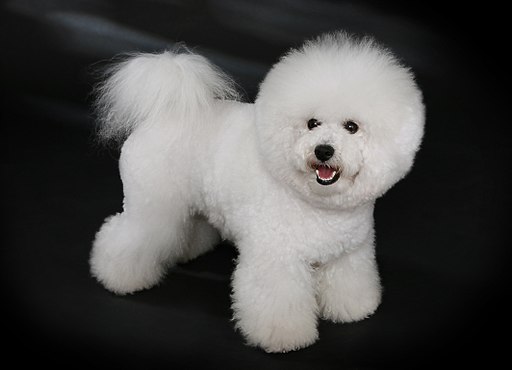Dog Day Saturday 2024-03-09
Owning and interacting with pets, according to studies, can be a form of therapy for many. We have dedicated Saturday to dogs and Wednesday to cats, when we will post an article on each of those days. We will also post articles on occasion about other animals people may have as pets. – Editorial Team
.
Bichon Frisé
.

Heike Andres, CC BY-SA 3.0 DE, via Wikimedia Commons
The Bichon Frisé is a small, cheerful, and affectionate dog breed known for its distinctive fluffy white coat and lively personality.
History:
- Origins: The Bichon Frisé’s exact origins are somewhat uncertain, but it is believed to have descended from the water spaniel and was developed in the Mediterranean region, particularly in Italy and France.
- Early Development: The breed gained popularity among European nobility during the Renaissance era and was favored as a companion dog.
- Decline and Revival: The Bichon Frisé faced a decline in popularity during the French Revolution but experienced a revival in the 19th century. It was officially recognized by the American Kennel Club (AKC) in 1972.
Appearance:
- Size: The Bichon Frisé is a small dog, typically weighing between 10 to 18 pounds (4.5 to 8 kg).
- Coat: Their hallmark feature is their dense, curly, and hypoallergenic coat, which is always white. It doesn’t shed much and is considered more suitable for allergy sufferers.
- Expression: They have a gentle, expressive face with dark round eyes, a black nose, and a rounded skull.
- Tail: The tail of a Bichon Frisé is plumed and carried over the back.
Temperament:
- Friendly: Bichons are known for their friendly and sociable nature. They typically get along well with children, other dogs, and even cats.
- Playful: They have a playful and lively temperament, often retaining their puppy-like energy well into adulthood.
- Affectionate: Bichons are affectionate and enjoy being around their human family members. They thrive on attention and love to cuddle.
- Intelligent: While they can be a bit stubborn at times, Bichons are generally intelligent and trainable with positive reinforcement techniques.
Care and Maintenance:
- Grooming: The Bichon Frisé’s coat requires regular grooming to prevent matting and maintain its fluffy appearance. This includes daily brushing and periodic professional grooming sessions.
- Exercise: Despite their small size, Bichons are fairly active dogs and require regular exercise to keep them physically and mentally stimulated. Daily walks and playtime are essential.
- Training: Early socialization and obedience training are important for Bichon Frisés to ensure they develop into well-behaved companions.
- Health: Like all dog breeds, Bichons are prone to certain health issues such as allergies, dental problems, and patellar luxation. Regular veterinary check-ups are crucial to monitor their health.
Living Environment:
- Suitability for Apartments: Bichons are well-suited for apartment living due to their small size and relatively low exercise needs. However, they still require regular outdoor activity and mental stimulation.
- Companionship: Bichon Frisés thrive in environments where they receive plenty of attention and companionship from their owners. They may experience separation anxiety if left alone for long periods.
Conclusion:
Overall, the Bichon Frisé is a delightful breed known for its charming personality, striking appearance, and suitability as a family companion. With proper care, training, and socialization, they can make wonderful pets for individuals and families alike.

